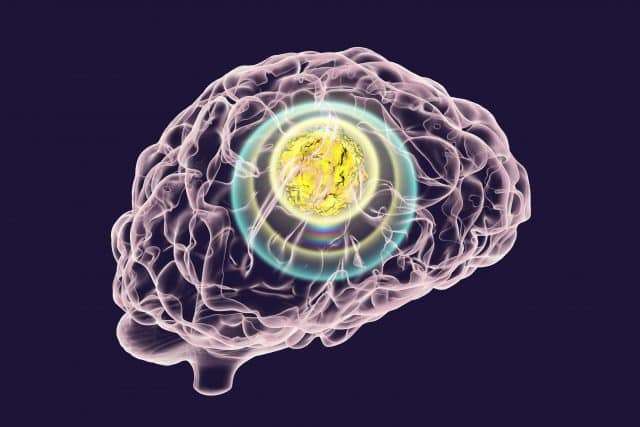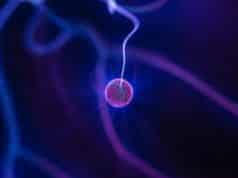Senator John McCain, Senator Ted Kennedy, and Beau Biden are linked by more than just politics. All three of them also lost their lives to glioblastoma, an aggressive brain cancer with only a 10% three-year survival rate. There hasn’t yet been an effective way to treat glioblastoma, but scientists are now saying that immunotherapy could help.
 The small study was performed by researchers at the University of California at Los Angeles (UCLA) and was published today in Nature Medicine. In looking at patients with recurrent glioblastoma, the team discovered that those who received a checkpoint inhibitor drug before getting surgery lived for 417 days. Those who got the drug after surgery only survived 228 days, which is around the current life expectancy for the disease.
The small study was performed by researchers at the University of California at Los Angeles (UCLA) and was published today in Nature Medicine. In looking at patients with recurrent glioblastoma, the team discovered that those who received a checkpoint inhibitor drug before getting surgery lived for 417 days. Those who got the drug after surgery only survived 228 days, which is around the current life expectancy for the disease.
 Checkpoint inhibitor drugs are becoming standard treatments for many cancers in the U.S. The 2018 Nobel Prize in medicine was awarded to to researchers who developed the therapy, Dr. James Allison and Dr. Tasuku Honjo. The way the drug works is by blocking a protein called PD-1. PD-1 prevents the immune system from detecting cancerous cells, but when it’s blocked, the immune system can see the cells and attack them. These drugs have been effective at treating certain cancers in certain patients, but those patients are still in the minority.
Checkpoint inhibitor drugs are becoming standard treatments for many cancers in the U.S. The 2018 Nobel Prize in medicine was awarded to to researchers who developed the therapy, Dr. James Allison and Dr. Tasuku Honjo. The way the drug works is by blocking a protein called PD-1. PD-1 prevents the immune system from detecting cancerous cells, but when it’s blocked, the immune system can see the cells and attack them. These drugs have been effective at treating certain cancers in certain patients, but those patients are still in the minority.
The checkpoint inhibitor drug used by the team is called pembrolizumab, known as Keytruda. It was approved by the Food and Drug Administration as a first-line therapy for several different cancers, and it was used to treat former president Jimmy Carter for late-stage melanoma.
Although other studies with immunotherapy and glioblastoma have been done, this is the first to have shown any efficacy. Because glioblastoma is excellent at weakening the immune system, it’s been difficult for researchers to find treatments. The results of this study by no means signal that glioblastoma has been “cured,” but they do show promise that immunotherapy could be effective with more research. According to immunologist Robert Prins, who led the study, the results will help future teams to create more effective drug combinations.
 The study was not able to show exactly how Keytruda worked in the glioblastoma patients. It’s possible that when the drug was administered before surgery, it activated T-cells within the tumor. Giving the drug after the surgery may not have had much of an effect because the tumor, along with the T-cells, were removed.
The study was not able to show exactly how Keytruda worked in the glioblastoma patients. It’s possible that when the drug was administered before surgery, it activated T-cells within the tumor. Giving the drug after the surgery may not have had much of an effect because the tumor, along with the T-cells, were removed.
The study’s results were surprising to many researchers, as glioblastoma has not historically responded well to immunotherapy treatments. Further studies will be done to confirm the validity of this small study and determine what the next steps might be.


























